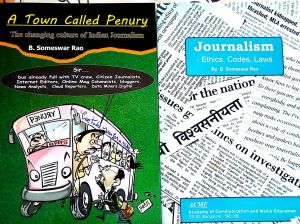
IN INDIA, EVERYTHING seems to take on a political colour. Human rights advocates cry themselves hoarse when terrorists or a particular community is targeted, but remain silent when victims of terrorism or the other community are the sufferers. If a Dalit is even touched, these opponents of untouchability are up in arms. An ‘upper caste’ person can be subject to any indignity or torture and there is not even a murmur.

It is not news. But very much in the news is a journalist – M. J. Akbar, former editor and founder of two well-known newspapers. Several women journalists have revealed that though he ‘did’ nothing, he had made them uncomfortable by calling them to hotel rooms for interviews or offering them drinks – both “unacceptable” in India, though not elsewhere.
Thanks to an actress, Tanushree Dutta, who is become more famous for her sexual harassment charge than her acting or memorable roles, the #MeToo movement has been revived in India.

She charged Naana Patekar, indisputably an actor of distinction., with sexual harassment. She also attacked Akshaykumar for acting with Nana in a film and Amitabh Bacchan, the most eminent actor of Bombay film industry, for refusing to comment on the issue.
Another ‘right-leaning’ celebrity, singer Kailas Kher, was the next target
Even as these tweets, interviews and Facebook posts about the three kept pouring in on a daily basis, A recent addition to the list if Alok Nath described as ‘India’s most Sanskari actor’ (Sanskari

means cultured or traditional).
It is a welcome movement. But not political witch-hunt in its name.
Akbar is now in BJP and is a minister at the Centre. Nana and Akshay are known to be cooperating with the BJP-led government headed by Narendra Modi. ‘BigB’ Amitabh, has been the brand ambassador of Gujarat (ruled by BJP) tourism and is also believed to be favourably disposed towards Modi. The party also talks of Indian culture and traditions and that, according to liberals, makes Alok Nath a BJP man.
This opened the floodgates of socislmedia posts about 0sexually inappropriate acts of many celebrities: writer Chetan Bhagat, film-makers Vikas Bahl and Gaurang Doshi, actor Rajat Kapoor, composer Anu Malik, even a woman comedian Aditi Mittal and many more.
Sexual harassment is certainly abominable and their being pro-Modi does not absolve the perpetrators of any blame. But what is surprising is that the woman journalist who wrote an article about her experiences with Akbar without naming him, continued to work with him and remained silent when he was Congress MP and the party’s leader and spokesman. Now, suddenly, she thought it fit to reveal his name.
Several women journalists tweeted in her support. Is it a mere coincidence that most of them are anti-Modi and had remained silent when Tarun Tejpal, also anti-BJP and the brain behind string operations against that party, was accused of and arrested for rape?
What Nana Patekar and Alok Nath did are certainly indefensible if true, even after some publicly defended them. All the tweets about Akbar, however, say that when the women said ‘no’ he did not pursue the matter in most cases. But Akbar has as many as 20 women tweeting about sexual harassment – the highest so far – and has resigned from the ministry. This must obviously be at the instance of Prime Minister Narendra Modi, though no one wants to give him the credit.
And all these reports are coming out years later. It is true that in India even rapes are hidden as women are in no position to complain as victim-blaming is common and mostly the perpetrators are powerful.
A main issue in the sexual harassment debate is that men should learn that ‘no’ means NO and the tweets say that Akbar always accepted the ‘no’. So they, in effect, certify that he did the right thing. That some women journalists take advantage of their femininity cannot be denied. Having spent 60 years in that profession I understand that sexual harassment and misuse of positions of power to take advantage of women.
Jokes about The Asian Age newsroom being called Akbar’s Harem and stories of many flirtations in the profession are known to all journalists. And such stories are sure to be there wherever both men and women work. The Supreme Court of India has outlined what came to be known as the ‘Visakha guidelines’ and has made it compulsory for every establishment with employees to have a committee on sexual harassment
